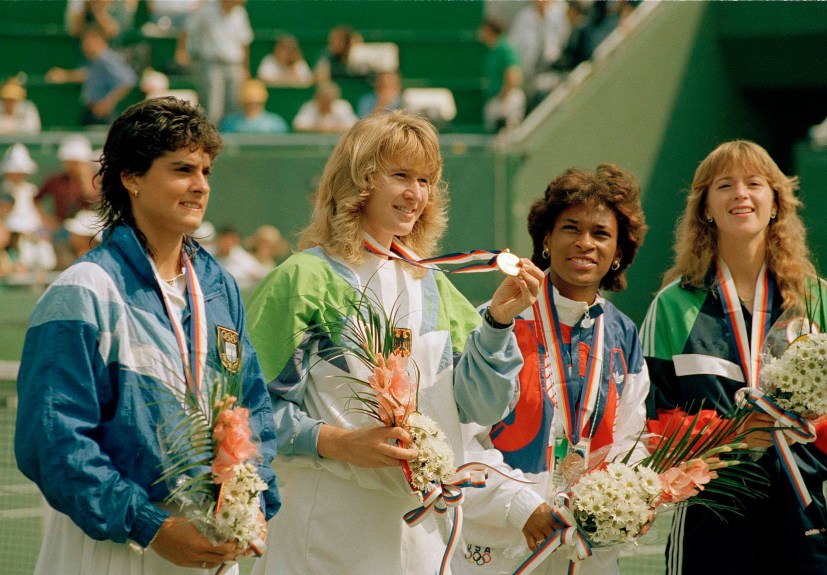In the annals of tennis history, 1988 marks one of the most extraordinary and iconic achievements of all time. Steffi Graf, one of the greatest players to ever grace the court, not only won the women’s singles gold medal at the Seoul Olympics on October 1, 1988, but she also clinched what is known as the *Golden Slam*—a feat that remains unmatched to this day. Graf’s triumph in Seoul solidified her status as a tennis legend, completing a year that would be forever etched in history for its unrivaled success.
The Road to the Golden Slam
Before the Seoul Olympics, Steffi Graf had already established herself as a force to be reckoned with in the tennis world. In 1988, Graf had already dominated the Grand Slam circuit, claiming victories at the Australian Open, French Open, and Wimbledon. With her distinctive, all-around style of play, Graf had established a reputation as one of the most complete and dominant players in the game.
Her powerful forehand, remarkable footwork, and mental toughness allowed her to be virtually unstoppable that year. As the reigning world number one, she was the overwhelming favorite to win the Olympic gold in Seoul, and she did not disappoint.
The Olympic Final: A Meeting with Gabriela Sabatini
Graf’s final opponent in Seoul was her Argentine counterpart, Gabriela Sabatini, who herself had been a rising star on the WTA circuit. Sabatini had already won her first Grand Slam title earlier in the year, at the US Open,
The match itself was a demonstration of Graf’s resilience and skill. She won the final 6-3, 6-3 in just under an hour, showing off her lethal forehand and speed around the court. Though Sabatini fought hard, Graf was simply too strong, and her game was firing on all cylinders. Sabatini, while competitive, could not match Graf’s intensity and consistency, and the match ended with a confident and clinical victory for Graf.
The Golden Slam: What it Means
Steffi Graf’s Olympic victory in Seoul gave her a unique place in the tennis history books. By winning the gold medal in addition to her Grand Slam titles from earlier that year, Graf became the first and only player (as of 2024) to win the *Golden Slam*—a feat that involves claiming all four Grand Slam titles and the Olympic gold medal in a single calendar year. No male or female player has duplicated this achievement, making Graf’s accomplishment even more remarkable.
The Golden Slam is considered one of the pinnacle achievements in tennis, and Graf’s dominance in 1988 represents the epitome of tennis excellence. Her victory in Seoul was a symbolic conclusion to a year of unprecedented success, which she had started by claiming the Australian Open and continued with her victories at the French Open, Wimbledon, and the US Open.
Graf’s Legacy
Steffi Graf’s Golden Slam remains one of the most significant accomplishments in the history of sports, not just tennis. Her 1988 season showcased the mental fortitude, physical prowess, and versatility required to conquer both the demanding world of Grand Slam tennis and the unique challenge of the Olympic Games. Her blend of power and grace on the court was unmatched during this period, and she became a global sports icon.
Graf’s Olympic victory not only cemented her place as one of the best tennis players of all time but also helped elevate women’s tennis into the mainstream, inspiring generations of players to follow. Her 1988 Golden Slam continues to stand as a testament to what can be achieved when an athlete is at the peak of their powers, dominating every surface, and excelling on the biggest stages in the world.
Despite the passing of decades, Graf’s Golden Slam is still unparalleled in tennis, a record that might never be broken. In 1988, Steffi Graf didn’t just win tennis tournaments—she made history, and she did so with an elegance and dominance that has never been duplicated. Her Golden Slam remains the pinnacle of tennis achievement, one that may be admired but, as of now, remains beyond reach for even the sport’s most talented players.
Leave a Reply